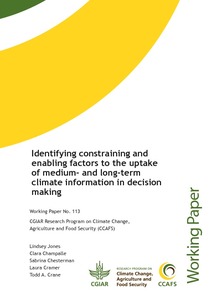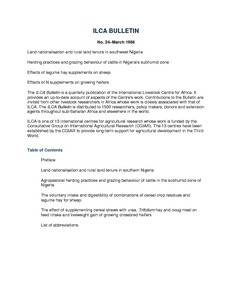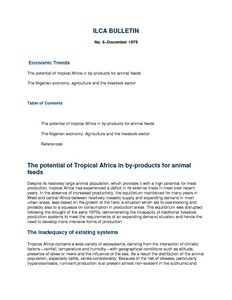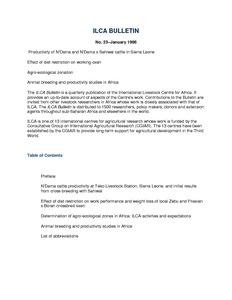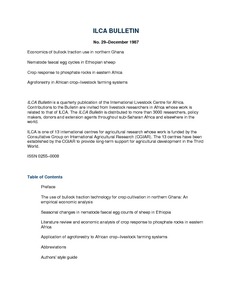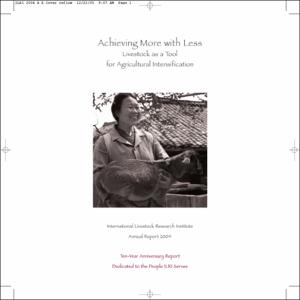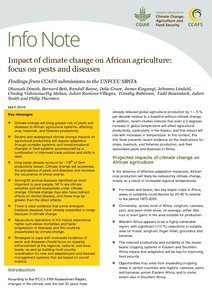Identification of agro-pastoralists adaptation strategies to climate variability: A case study in Mopti-Mali
Identifying and characterizing areas for potential forage production in Rwanda
Identifying constraining and enabling factors to the uptake of medium- and long-term climate information in decision making
We apply a systematic review of peer-reviewed literature to assess constraining and enabling
factors to the uptake of medium- to long-term climate information in a wide range of sectoral
investment and planning decisions. Common applications of climate information are shown to
relate to adaptation of environmental policy and planning, urban planning and infrastructure,
as well as flood and coastal management. Analysis of identified literature highlights five
If we halt deforestation, will the world starve?
Making sure that we will continue to have enough to eat is at the heart of our shared ambitions to mitigate climate change. The United Nations Framework Convention on Climate Change (UNFCCC), the convention that has guided us through the highs and lows of 18 rounds of annual negotiations, states upfront that the reasons to stabilise emissions are threefold: to allow ecosystems to adapt naturally , to enable economic development to proceed in a sustainable manner and to ensure that food production is not threatened .
If we halt deforestation, will the world starve?
Making sure that we will continue to have enough to eat is at the heart of our shared ambitions to mitigate climate change. The United Nations Framework Convention on Climate Change (UNFCCC), the convention that has guided us through the highs and lows of 18 rounds of annual negotiations, states upfront that the reasons to stabilise emissions are threefold: to allow ecosystems to adapt naturally , to enable economic development to proceed in a sustainable manner and to ensure that food production is not threatened .
Impact of climate change on African agriculture: focus on pests and diseases
According to the IPCC’s Fifth Assessment Report, changes in the climate over the last 30 years have already reduced global agricultural production by 1 – 5 % per decade relative to a baseline without climate change. In addition, recent studies indicate that even a 2 degrees increase in global temperature will affect agricultural productivity, particularly in the tropics, and this impact will rise with increases in temperature.



